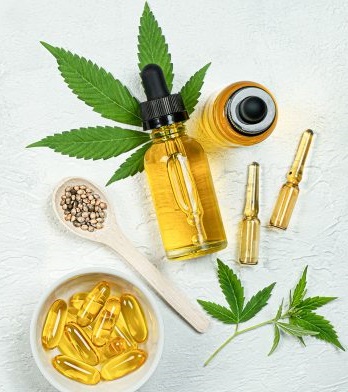The Safety of CBD: What You Need to Know

No matter what anyone tells you, it’s important to always research any substance you intend to put in your body, determining for yourself whether it will do you more harm than good. CBD is no different, and in fact, doing your own research is even more important in the context of this non-intoxicating cannabinoid since the federal government has yet to fully regulate it or any other cannabinoid found in hemp.
Are CBD products, such as CBD softgels with 25mg cannabinoids per serving, really safe? Learn more about what CBD is and the research that has been conducted into this cannabinoid throughout the course of this succinct guide.
What Is CBD?
Cannabidiol (CBD) is a non-intoxicating cannabinoid found in Cannabis sativa. Already the second-most abundant cannabinoid across all discovered strains of cannabis, CBD concentrations in hemp strains have been further boosted with careful selective breeding.
After being processed into a concentrated extract, CBD can be added to practically any product formulation, with the types of CBD products now available on the internet ranging from capsules to vapes to creams and gummies. Unlike THC, the most famous cannabinoid in cannabis, CBD does not get you high but may offer even greater therapeutic benefits.
Is CBD Safe?
The overall safety of CBD is now so well established that even research scientists no longer dispute that this cannabinoid appears to be nearly harmless. Anyone who has used this cannabinoid will tell you that CBD makes you feel mildly sleepy without seriously impacting your state of mind, and many will also tell you that this simple cannabinoid helped them overcome chronic pain or other serious issues that were negatively impacting their quality of life.
CBD can cause mild side effects like sleepiness, gastrointestinal distress, or dry mouth. In individuals with extremely rare cannabinoid allergies, CBD may manifest more serious adverse effects, but such incidents are incredibly uncommon. For the average user, CBD will not cause any negative effects whatsoever, impacting the body and mind subtly rather than overtly.
CBD Safety Studies
One of the first pieces of comprehensive scientific literature to tackle the issue of CBD toxicity was published in 2017 in the journal Cannabis and Cannabinoid Research. Titled “An Update on Safety and Side Effects of Cannabidiol: A Review of Clinical Data and Relevant Animal Studies,” the research review “confirmed and extended” the “favorable safety profile of CBD in humans” that had been previously observed.
CBD use truly caught on in the mainstream over the following two years, prompting the publishing of another CBD safety study, this time titled “Cannabidiol Adverse Effects and Toxicity” and published in Current Neuropharmacology. The conclusions the authors reached were slightly different from earlier results, with CBD being described as “not risk-free” due to the potential of “drug-drug interactions,” which we will discuss further below.
Lastly, we turn to a recent piece of research from 2022, which evaluated the safety of CBD based on clinical trial data only. Titled “Adverse Effects of Oral Cannabidiol: An Updated Systematic Review of Randomized Controlled Trials (2020–2022)” and published in Pharmaceutics, this research review concluded that “CBD has a good safety and tolerability profile,” showing that the consensus on CBD safety has not changed much in more than five years.
Does CBD Interact with Prescription Drugs?
Yes, CBD can sometimes negatively interact with prescription drugs. It is important to stipulate, though, that any negative effects occur because CBD causes prescription drugs to stay in your body too long, not because some hidden, dangerous attribute of CBD becomes unlocked during these interactions.
Why might CBD cause your body to retain prescription drugs longer than it should? Because both CBD and many prescription drugs use the liver enzyme CYP3A4 for metabolism. Any CYP3A4 enzymes used by CBD cannot be used by prescription drug compounds at the same time, slowing the processing and excretion of these drugs.
How to Use CBD Safely
If you are at all concerned about experiencing adverse effects from using CBD, consult with your physician ahead of time. By carefully reviewing your current medication schedule within the context of your unique personal health situation, you and your trusted physician will be able to determine both whether CBD is right for you and an ideal daily dose to use.
The Bottom Line: Is It Safe to Use CBD?
The majority of experts would agree that CBD is safe to use under most circumstances. Even water can be dangerous when ingested at certain quantities, though, so it would be incorrect to say that CBD is a perfectly innocuous compound. Used with a basic modicum of common sense, CBD is unlikely to ever cause any harm. Don’t hesitate to ask for a physician's advice, however, if you are unsure whether using CBD could be dangerous due to your personal health situation.
839GYLCCC1992



Leave a Reply